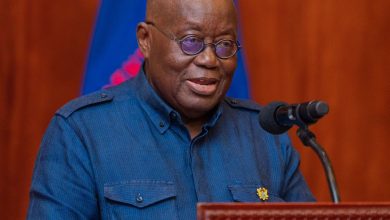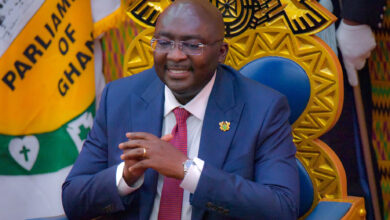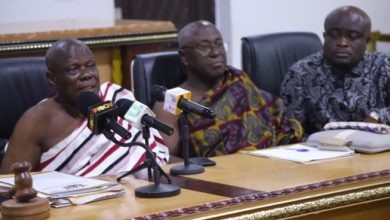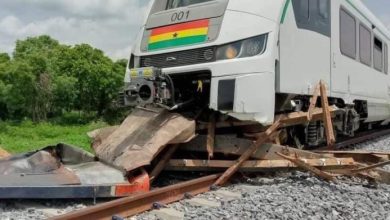Akufo-Addo: Ascension to political power outside the ballot box unacceptable
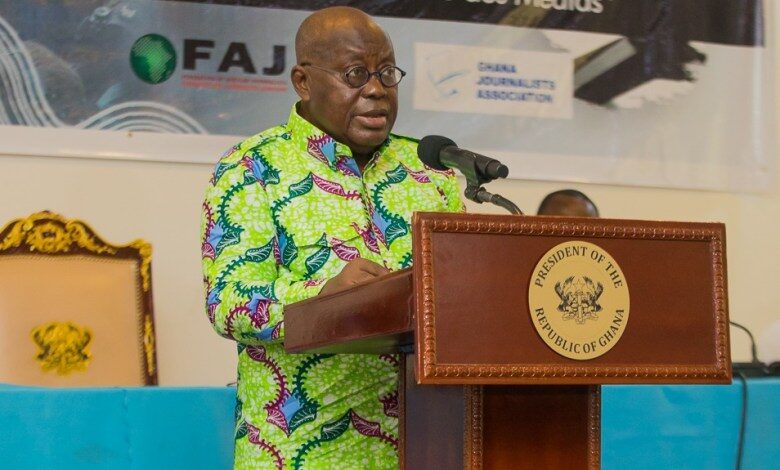
The President Nana Addo Dankwa Akufo-Addo has said that ascension to political power by anyone in Africa outside the ballot box is unacceptable.
Addressing the opening ceremony of the fifth high-level ECOWAS parliamentary seminar at Winneba in the Central Region, President Akufo-Addo said there are two time tested principles when it comes to elections and they are “the direct participation of the people in the election of leaders” and secondly, “the maintenance and operation of election systems that capture the genuine will of the people”.
To this end, he indicated that seizing political power without the will of the people in any jurisdiction or the manipulation of an electoral process in your favour, can never be right because it leaves the marriage between the electorate and the elected, a forced one, making the environment toxic and the mandate becomes precarious.
“The authority of a public elected officer is vested in the people and this can only legitimately be exercised through free, fair and credible elections.
“That is why having dedicated nearly half a century of my life fighting for the entrenchment of democratic values in Ghana’s body politic, the ascension to power by any other means other than the ballot box, remains for me wholly unacceptable no matter the ostensible justification,” Akufo-Addo said.
He added: “It is important to state that the strength of any democracy is very much determined by the credibility of its electoral systems and respect for the will of the people.
“We cannot overlook the fact that instability has followed disputed elections in many parts of our continent. All stakeholders in the electoral process must work to ensure that there are no lingering questions about the legitimacy of an election
“There will always be winners and loosers in an election, that is the system of government we in West Africa subscribe to.”
EC goodwill message
The chairperson of the Electoral Commission, Jean Mensa, has described Ghana’s last general elections in 2020 as “historic” saying it has become a case study for most advanced democracies in the world.
Mensa said: “I am pleased to say that Ghana held an election in December 2020 that prove the story of elections in our sub-region can indeed be an inspiration.”
She added: “That our story as West African states has been one that brings hope to our youth and light to the coming generations and that we can provide best practices the most advanced democracies of the world can learn from. Yes, we can!”
Historic polls
“I humbly refer to Ghana’s 2020 elections as historic for the transparency, the credibility, the cost-effectiveness, the high turn-out and the peaceful conduct that characterised it. So orderly, so methodical, so calm were the polls on 7 December 2020 that BBC could find no other way to describe our elections than boring,” the chair of the elections management body said.
Speaker of ECOWAS parliament
Speaker of the ECOWAS Parliament , Dr Sidie Mohammed Tunis, in his address noted that history will be kind to President Akufo-Addo for his service to the Economic Community of West African States (ECOWAS) and for his uncompromising support for the ECOWAS Parliament.
He bemoaned recent instability in the ECOWAS sub-region in relation to elections, rule of law and for democratic governance. He therefore urged the ECOWAS Parliament to come up with workable plans on how to improve the conduct of elections in the ECOWAS sub-region.
Additionally, Speaker Sidie Mohammed Tunis criticized the phenomenon of constitutional amendment before elections in some West African States. He pointed out that constitutional changes to allow third term presidencies are partly to blame for most of the stability challenges in the West African sub-region.
In his address, the Speaker requested of President Akufo-Addo to accept the role of being the ECOWAS champion for the advocacy toward the policy of direct election of members of the ECOWAS Parliament. President Akufo-Addo accepted the appointment and promised to do his best in the new role.
ECOWAS Parliament
The ECOWAS Parliament, also known as the Community Parliament, is a forum for dialogue, consultation and consensus for representatives of the people of West Africa, with the aim of promoting integration in the West African sub-region.
As one of the Institutions of the Community, it is presently, a non-legislative Assembly that issues advisory opinion to the Authority of Heads of State and Government and the Council of Ministers.
The Parliament was established under Article 6 and 13 of the ECOWAS Revised Treaty of 1993. The Protocol relating to the Parliament was signed in Abuja on 6 August 1994 and entered into force on 14 March 2002. It provided for the structure, composition, competences and other matters relating to the Parliament.
In December 2016, the Supplementary Act A/SA.1/12/16 relating to the Enhancement of Powers of the ECOWAS Parliament was adopted, providing for the strengthening of the operations of the Parliament, including its objectives and competences. This Act repealed the original Protocol and stands as the addendum to the ECOWAS Treaty, on the Parliament.
The Act empowers the Parliament to carry out the typical mandate of a parliament such as being involved in the adoption of the Community budget, the enactment of all Community Acts relating to ECOWAS Economic and Monetary integration policies or the Treaty and carrying out parliamentary oversight functions over the activities of programme implementing bodies of the Community.
It has also strengthened the institutional role and powers of the Parliament to contribute in areas such as peace, security, good governance, and human rights.
The Parliament is divided into two wings: the political as well as administrative/technical wings. The political wing is composed of Members of Parliament, that occupy one hundred and fifteen (115) seats.
Members of the Parliament are drawn from the National Assemblies of ECOWAS Member States until the establishment of electing Members by direct universal suffrage.
Each of the fifteen (15) Member States has a guaranteed minimum of five (5) seats at ECOWAS Parliament. The remaining seats are shared on the basis of population. Consequently, Nigeria has thirty-five (35) seats, Ghana eight (8) seats, Cote d’Ivoire seven (7) seats, while Burkina Faso, Guinea, Mali, Niger and Senegal have six (6) seats each.
The remaining States: Benin, Cape Verde, The Gambia, Guinea Bissau, Liberia, Sierra Leone and Togo have five (5) seats each. The Structure of the Political Wing is as follows: The Plenary, Bureau of Parliament, The Conference of Committees’ Bureaux and Standing Committees.
General/Specific Objectives
The general objective of the fifth high-level ECOWAS parliamentary seminar 8s to appraise the Electoral systems in Member States in order to identify the challenges and put forward proposals for possible solutions to the various shortcomings observed in the organization of elections.
The specific objectives the seminar are two fold. First is “to identify the deficiencies as well as good practices for conducting elections in Member States within the context of existing legal, institutional and material frameworks”.
The second is “to make recommendations for new frameworks and mechanisms to improve existing legal, institutional and material frameworks for conducting elections in Member States.


